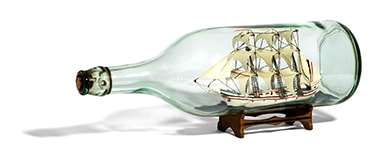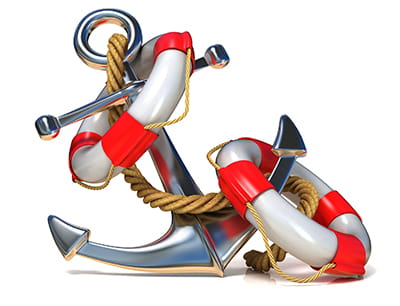New Maritime law: Oman
 The Sultanate of Oman is not a signatory to the 1924 Hague Rules corresponding to Bills of lading nor the 1974 Athens convention in relation to the carriage of travelers, we presently see a modern local codification of identical insurances. In the numerous maritime regions where Oman has ratified the fundamental IMO Conventions, we see the expansion of local color without bringing down the flag State and Port State commitments for each situation.
The Sultanate of Oman is not a signatory to the 1924 Hague Rules corresponding to Bills of lading nor the 1974 Athens convention in relation to the carriage of travelers, we presently see a modern local codification of identical insurances. In the numerous maritime regions where Oman has ratified the fundamental IMO Conventions, we see the expansion of local color without bringing down the flag State and Port State commitments for each situation.
On March 30th, 2023, Sultani Decree No. 19/2023 was issued proclaiming Oman's new Maritime Law. The Announcement annuls the Maritime Law enacted by the Law Regulating Maritime Navigation in Territorial Waters promulgated by Sultani Decree No. 98/1981 and Sultani Decree No. 35/1981 as well as some other related regulations and guidelines that conflict with its provisions. The primary aim of the new Maritime Law is to manage Oman's maritime industry, focus on navigation, sailor, and maritime environmental safety, and promote its development.
The recently enacted Decree presents a complete framework for investigating maritime mishaps and debris management, along with provisions for penalties and fines in case of violations. It likewise manages maritime tourism, which was not covered by the previous law. Moreover, the Decree incorporates updates to different legislative aspects and it covers ship registration, maritime liens, and requirements, ship agents, freight agents, and representatives.
It's critical to take note that the Minister of the Ministry of Transport, Communications, and Information Technology (“MTCIT”) will give important guidelines and regulations to execute the Declaration according to Article (2) of the Decree. In the interim, current regulations and decisions will remain effective except if they go against the provisions of the Decree.
The new law, containing 387 articles in 9 sections, covers different aspects of the maritime sector.
Section one framework definitions and general provisions for implementing the law, including Oman's ratified international maritime treaties, and lays out the MTCIT responsibility according to the maritime sector.
 Section two is concerned with the ship and includes various perspectives, like the circumstances for acquiring or losing Omani nationality, the commitment for Omani vessels to display the flag of Oman, and regulations relating to supervision, investigation, possession, management, sales, approvals, shipbuilding, licenses, registration, and ship’s rights. This segment likewise spreads out the conventions that the MTICIT should adhere to while investigating a ship and governs the methodology for registering and deregistering an Omani ship.
Section two is concerned with the ship and includes various perspectives, like the circumstances for acquiring or losing Omani nationality, the commitment for Omani vessels to display the flag of Oman, and regulations relating to supervision, investigation, possession, management, sales, approvals, shipbuilding, licenses, registration, and ship’s rights. This segment likewise spreads out the conventions that the MTICIT should adhere to while investigating a ship and governs the methodology for registering and deregistering an Omani ship.
Section three focused on property rights a ship could have, including maritime liens and mortgages. It likewise features the types of legal attachments that can be forced on ships.
Section four defined the duties and responsibilities of those associated with maritime transport, including employment contracts for the experts and seafarers and its terms and conditions and reason for termination.
Section five outlined the roles and responsibilities of ship agents and brokers.
Section Six governs ship contracting and introduces new types of carriage, including maritime tourist transport.
Section Seven provides the structure for examining and managing marine mishaps and debris and the methodology to be followed.
Section Eight regulates marine insurance, claims settlement, and timelines related to claims emerging from the insurance policy.
Section Nine prescribes punishments and fines for violating the law, including the authority of the Minister of MTCIT to determine administrative penalties.
 Conclusively, the maritime sector in the Sultanate of Oman was introduced to a critical development, through the issuance of the Royal Decree No. 19/2023 by His Majesty Sultan Haitham bin Tariq. The Decree proclaims a new Maritime Law for Oman, with the aim of developing Oman's maritime sector, along with focusing on the significance of navigational safety, seafarer protection and environmental preservation. Besides, the Law energizes the improvement of shipbuilding and commercial maritime operations.
Conclusively, the maritime sector in the Sultanate of Oman was introduced to a critical development, through the issuance of the Royal Decree No. 19/2023 by His Majesty Sultan Haitham bin Tariq. The Decree proclaims a new Maritime Law for Oman, with the aim of developing Oman's maritime sector, along with focusing on the significance of navigational safety, seafarer protection and environmental preservation. Besides, the Law energizes the improvement of shipbuilding and commercial maritime operations.
Prominent elements of the Law envelop updated regulations for maritime personnel, including maritime work contracts, vessel registration under the Omani flag, maritime mishaps and penalties, maritime liens and enforcement, while likewise including provisions for ship agents, freight agents, forwarders, and brokers.
 English
English
 عربي
عربي Русский
Русский 官话
官话 português
português
 Türk
Türk 












